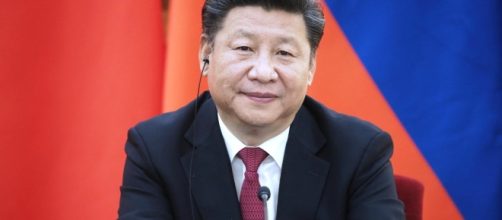china, in line with the newly agreed to UN sanctions, is forcing North Korean businesses out. The UN sanctions, agreed to earlier this month by the UN Security Council, require major economic constraints against the isolated dictatorial regime, Including limiting the exports by North Korea to China. According to China's Ministry of Commerce, the businesses have 120 days after the September 11th announcement to terminate operations. The international response is to the increased nuclear tests by Kim Jong-Un over the past few months that have caused tensions to rise in the region.
The most recent announcement today from China will eliminate joint venture businesses between the two nations. Considering that China is the main trade ally for North Korea, the enforcement of these sanctions is dependent upon China's cooperation.
Large portions of the regime's economy are produced through coal exports to China, as well as through petroleum imports. Earlier this month, China agreed to stop the majority of their imports of North Korean coal through sanctions they previously agreed to.
The announcement today aims to decrease money flows that North Korea receives in the form of returned wages by North Korean workers in joint-venture businesses in China. A large concentration of these businesses are located near the border between the two nations.
North Korean nuclear tests
Over the past few months, the escalation between the DPRK and the US were sparked by the increased testing of nuclear weapons by the regime. According to the Associated Press, North Korea tested a significantly larger nuclear warhead. North Korea began plans to start testing intercontinental ballistic missiles in January of this year.
By June, they had successfully tested their first ICBM. President Trump took to Twitter, to release a hailstorm of escalating rhetoric over the international crisis.
The shock heard around the world
On September 3, the North Korean news agency reported that the country had successfully tested a hydrogen bomb, increasing the likelihood of catastrophic damage if Kim Jong-Un decided to preemptively strike the United States.
The country's sixth nuclear test resulted in a 6.3 magnitude seismic event. This sparked the most recent emergency meeting of the UN Security Council.
U.S. Ambassador to the UN, Nikki Haley, emphasized the dire need for the demand of new multilateral sanctions to diminish the threat of a nuclear armed North Korea. President Trump, again, turned to Twitter to urge increased pressure from China to deal with North Korea. Stating that "North Korea is an embarrassment to China," highlighting China's inability to rein in their southern border neighbor.
China the enforcer?
As the debate over American military aggression in the region falters between nuclear warfare and preemptive strikes, the international focus has been on China's role in administering diplomatic solutions to the recent crises. If China is changing direction by not only implementing UN sanctions against their ally, but also deterring business, can the nation truly rein in rocket man?


